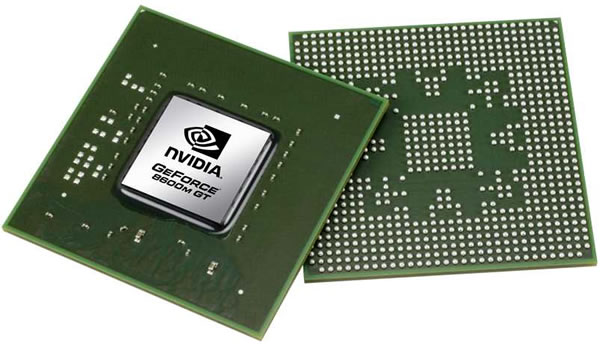Many Nvidia customers have been shafted by a cunningly worded settlement. In 2008, laptop owners sued the GPU-maker for defective graphics chips sold in Apple, Dell and HP notebooks. Following a two-year legal skirmish, the class action suit came to a head and both parties reached an arrangement in December 2010. Nvidia agreed to pay manufacturers to replace the faulty chips in their systems – but things got complicated just before the deal was to close.
At the last minute, it was discovered that HP couldn't repair the defective computers. Instead of swapping the broken chip, Nvidia agreed to replace affected HP systems with an entirely new machine. The settlement reads, "... a replacement computer of like or similar kind and equal or similar value will be provided to the consumer at Nvidia's expense. The Parties will meet and confer in good faith and agree on a suitable replacement of like or equal or similar value."
Many of the faulty systems were high-end tablet PCs and desktop replacements that retailed for more than $1,000. Naturally, affected HP customers expected to recoup their initial investment. After all, their original laptops were defective out of the box, so they've been holding on to a silicon paperweight through the duration of the trial. Considering how quickly computers depreciate, it would be illogical to replace a three-year-old notebook based on its present value.
Unfortunately, that's essentially what happened. In January, the replacement notebook was revealed to be a budget-oriented Compaq Presario CQ56. The 15.6-inch system retailed for a mere $330 at the time ($280 now) and is powered by a single-core 25W AMD V140 processor, a Radeon HD 4250 IGP, 2GB of RAM and a 250GB 5400RPM hard drive. The new machine was priced at approximately the amount that it would cost to repair the defective systems – about $350.

Unsatisfied with the CQ-56, some class members sought help from Ted Frank of the Center for Class Action Fairness. Frank filed a complaint in March and the court conducted a hearing on March 28. Frank said he's seen class members be ripped off before, but never anything like this. "Nvidia simply ignored what the settlement said." Nevertheless, the court overruled Frank's objection on Monday, issuing a statement can be summed up in two words: too bad.
"The Court finds that the CQ-56 replacement computer is a reasonable replacement for the original computers at issue in this case. Although there are differences between the CQ-56 and various computers for which it is offered as a replacement, the CQ-56 meets or exceeds nearly all of the specifications of the original computers. In addition, it comes with an advanced operating system, new warranty and other programs," US District Chief Judge James Ware said.
It's unclear if the disgruntled class members will seek further litigation, but Frank recommended that they enlist the help of a legal malpractice attorney to "sue over this breach of fiduciary duty." "It would be nice if the 'consumer advocates' fighting against freedom of contract actually advocated for consumers instead of attorneys and spoke up here," he continued. Would you feel cheated if your pricey defective notebook was replaced by a low-end, albeit more modern PC?